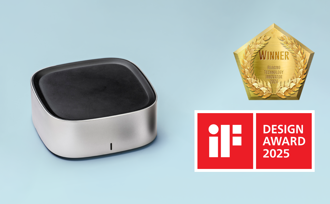
If your hearing clinic staff calls people “patients,” does that feed into the stigma around hearing aids – and possibly perpetuate negative stereotypes about people who need (and wear) hearing aids? Does the word “patient” indicate that the person you’re treating is considered “sick”?
If someone has hearing loss, should that be considered a “different” type of condition than other long-term, chronic health issues, like diabetes, heart disease, depression, or anxiety? All these issues need to be addressed, treated, and monitored. And none of these conditions should come with any kind of stigma or shame associated with them. Does it – and should it – matter what individuals with these conditions are called?
What’s in a Name?
Patient
A patient receives health care services, and the word patient, which has Latin and Greek roots, means one who suffers. In healthcare, a medical provider offers a patient solutions and treatments that the clinician deems most appropriate for their specific condition.
Customer
A customer is a person who purchases goods or services, and this is often considered to be a short-term, economic relationship. Customers purchase from vendors that have the items or services they need.
Client
A client purchases goods or services from another person or company, seeking professional advice and knowledge. There’s potential here for long-term, loyal, and ongoing relationships.
So, which term is most appropriate for people seeking audiology services? They’re receiving healthcare services (as a patient does), purchasing goods and services (e.g., a customer buying hearing aids), and they’re seeking professional advice and long-term relationships (per the definition of a client). Could (and should) these terms be used interchangeably?
A Vote for the Word “Patient”

Some people believe that anyone seeking healthcare services – including audiology – should be called a patient, arguing that there’s a difference in expectations between a patient and a customer. Since hearing care is healthcare, it makes sense that hearing care providers would call the people they treat “patients.”
Think of the relationships you have with people who sell you products or services outside of the healthcare sector. If you get your nails done regularly by the same manicurist, you’re a customer of that nail salon. You likely go to the same grocery store regularly and visit the same neighborhood post office. The relationships that you have with these vendors are typically superficial. You get your nails done, buy your produce and stamps, then continue your day.
But when you need healthcare – including hearing health – you likely research providers, share your medical history, and build long-term relationships with your providers. You want your audiologist and other hearing care providers to know you well and understand your health history. You have more at stake in your relationships with your audiologist vs. your postal worker, and you trust your audiologist with your hearing health. You want (and expect) long-term, honest relationships with your clinicians in a way that you don’t envision with the person selling you postage stamps.
Some would argue that a patient/provider relationship is deeper, longer, more personal, and more goal-oriented than the relationship between a customer/vendor, which is more surface-level, superficial, and impersonal.
Hearing Care as a Business
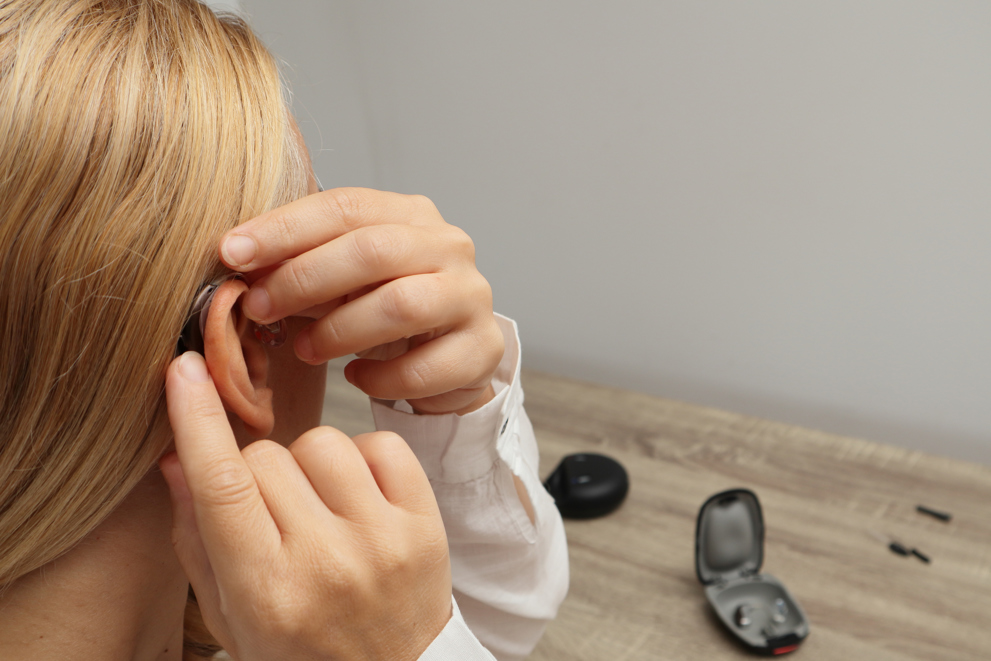
Now, consider that hearing care is also a business. In a business setting, the person paying for goods or services is a customer or client – not a patient. While audiology is also a business, going to the hearing clinic is much different than buying a car or a sweater, where the person making the purchase is considered to be a customer.
Even though hearing care is a business, your relationship with your audiologist is different than, say, the relationship you have with the person who services your car or cuts your hair. The relationship between you and your audiologist requires honesty, trust, respect, and open communication.
A hearing care provider must develop a deep, trusting relationship with the people they treat, always being mindful of each person’s hearing health. Treating the person like a customer – someone who is merely in a transactional, impersonal relationship – can corrode the relationship, decrease patient satisfaction, and negatively impact the healthcare outcome.
In healthcare, people often don’t have a choice about whether to buy, and don’t get to “shop around.” If you’re having a heart attack, you go immediately to the closest emergency room for urgent treatment.
However, hearing healthcare, while critical, presents a unique scenario. Unlike immediate medical emergencies, the decision to seek hearing care is often postponed. On average, individuals may wait up to seven years before pursuing treatment for hearing loss. This delay highlights a significant difference; while the need for improved hearing is essential, it is viewed through a lens of choice and deliberation.
Prospective patients weigh their options, consider the timing, and ultimately decide when, or if, to address their hearing health. This decision-making process more closely resembles that of a customer, yet the personal and health-related implications elevate the relationship beyond a simple transaction. It's a nuanced journey towards enhancing one's quality of life, requiring both professional guidance and personal commitment.
Should We Use the Term Customer Or Client?

Some people argue that the word “patient” implies that the person is sick, which is not necessarily the case with people seeking hearing care. Additionally, the term patient can suggest that the person seeking care is taking a passive role in their own treatment, relying on the provider to dictate what they should do and the best, most appropriate approach to care.
In healthcare, people receiving care are called “patients” and, historically, this has been the favored nomenclature. But healthcare covers a broad spectrum of services, including audiology. Should we use the same terminology for someone seeking long-term care for a serious, chronic illness as we do for someone who is healthy and active, visiting a hearing clinic with mild to moderate hearing loss to get hearing aids?
Does the term “patient” conjure up negative connotations? Do people instinctively think of “patients” as sick or weak – which is often not the case with people seeking audiology services? If a healthy, active 25-year-old sees an audiologist for hearing loss, should that person be called a patient? Or does that word lead to more stigma around hearing loss, perpetuating negative stereotypes that people with hearing loss are old, frail, and sick?
If we refer to individuals seeking hearing care as “customers” instead of “patients,” would that carry less shame? Would the term “customer” imply that these people have a choice around purchasing hearing aids – like having a choice in buying a new car or a TV? And would that empower them, knowing they’re in control of their own hearing health destinies?
And what about the term client? The Ida Institute in Copenhagen, an independent, non-profit organization that provides care for people with hearing impairment, uses the term “clients” to describe the individuals they treat. They work collaboratively with their clients, helping them develop the knowledge, skills, and confidence they need to better manage their hearing loss. And they maintain that improved hearing care can only happen when the client and provider trust each other and work collaboratively together. By building strong partnerships with their clients, they ensure better outcomes.
Remember the definition of client, as outlined in the Hearing Health Matters article, which can be applied to people with hearing loss: A client purchases goods or services from another person or company, seeking professional advice and knowledge. There’s potential here for long-term, loyal, and ongoing relationships. Would this terminology inspire more people to seek hearing care appointments and treatment?
Optical vs. Hearing Care
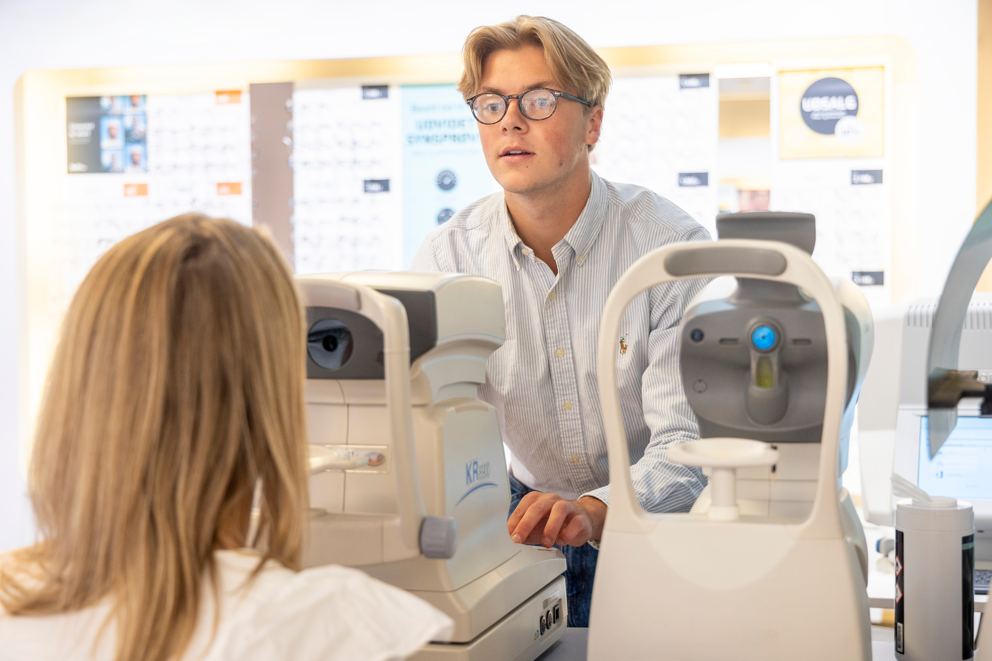
The optical industry has some similarities with the audiology sector, which is important to consider as hearing clinics strive to boost sales, conversions and patient satisfaction.
For one, an aging population has led to increased demand for optical care and products, as well as revenue growth, similar to the increased demand for audiology services and products. The optical retail industry earned $76.5 billion in the U.S. alone, according to the Vision Council’s 2023 report, which includes online sales.
When an optician wrote about the patient vs. client/customer dilemma in his blog, he defined a patient as someone who is given medical treatment, while a client takes advice from a professional. He argues that people see optical professionals for medical care, but also for their advice, so he favors the terms customer or client instead of patient.
This optician increases sales and conversions by providing advice. After analyzing a customer’s vision prescription and taking measurements of their face, he recommends frames that would be flattering on them and properly suit their prescription. He asks each customer about their lifestyle, and what they like and dislike about their current frames. Then, showing that he listened to their input, he recommends eyewear that will be suitable for their lifestyle (such as driving lenses for someone who is often in their car) and includes some elements that they said they prefer.
He says that by treating customers with respect – and not treating them like a sick or passive patient – they're more likely to continue seeing him, seeking his advice, and buying from him.
The shift from viewing individuals as patients to treating them as valued customers or clients can profoundly impact both the optical and audiology sectors. This model of personalized care and engagement offers valuable lessons for the audiology sector. By adopting a similar approach, audiology clinics can enhance their service delivery, making hearing care less about treating a condition and more about improving quality of life through personalized hearing solutions.
What Do You Call the People You Treat?
Hearing loss is an ongoing, chronic health condition that requires regular appointments, follow-up care, and monitoring.
Your terminology must be inclusive and respectful, shedding any unintended connotations of weakness or illness, particularly when it comes to conditions like hearing loss that carry unwarranted stigmas.
Perhaps, then, it's not about choosing one term over the other but about understanding the context in which we use them. By referring to those you serve as 'patients', you embrace the clinical and caring aspects of our role. As 'clients', you acknowledge their autonomy and the consultative nature of our relationship. And as 'customers', you recognize their right to make informed choices about the products and services they receive.
Ultimately, whether you choose 'patient,' 'customer,' or 'client,' the goal remains: to provide best care experiences that empowers individuals on their journey to better hearing.
Auditdata Solutions
Raising Awareness, Improving Lives
As a leading provider of audiology solutions, we see it as our responsibility to raise awareness about the consequences of undetected hearing loss, help guide individuals to take the initial steps toward detection and treatment, and advise hearing care professionals on how to provide the best care experience.

Other Blogs You Might Enjoy:
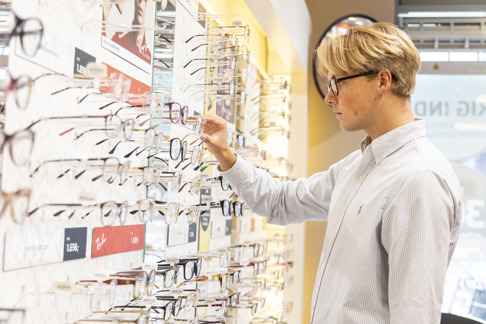
Exploring the Double Standard of Hearing Aids and Glasses
Why is there a stigma around wearing hearing aids, but not around wearing glasses? Eyeglasses were once a sign of age and impairment – remember the cruel old taunts of “four-eyes” – but are now seen as cool and trendy. Hearing aids should have a similar evolution: from stigmatizing burden to innovative, wearable tech.

Loud Music Contributes to Hearing Loss, Impacting 1 Billion Young People
Blasting your favorite songs on your headphones or attending live concerts could cause permanent hearing loss. In fact, loud music – and unsafe listening habits – may be contributing to hearing loss for more than one billion young people around the world.
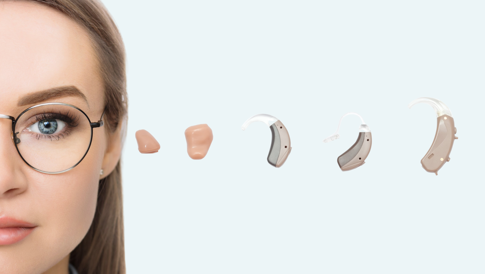
Reaching the Opportunities Between Optical- and Hearing Care
Acting on a hearing loss is still connected to a lot of stigmas. The average waiting time for doing something about a hearing loss is 7 years. Opposite to that, people get their eyes tested every second year. You should do the same for hearing care!
Don't Miss Out On the Latest Insights On Audiology
Sign up today to receive exciting updates, tips, and the latest newsletters from Auditdata.
Resources
⭐️ Auditdata Blogs:
How to Spotlight The Many Benefits Of Hearing Aids
Why no one wants to wear a hearing aid and what we can do to change that
Unveiling the Age Bias & Adding Diversity in Hearing Aid Advertisements
⭐️ U.S. Optical Retail Market Estimated at $76.5 Billion
⭐️ Eyeglasses & Contact Lens Stores in the US
⭐️ Clients v.s Patients Is There a Difference?

